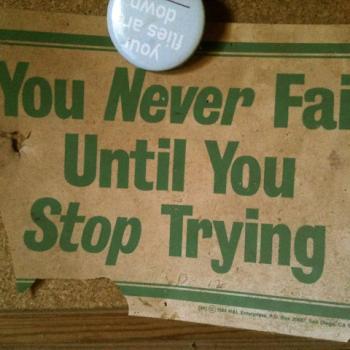Are the seeds about to grow?
Does this moment in history feel pregnant with possibility? Do you sense that all the necessary factors are aligning for something truly new to emerge? Will the generations inheriting our challenges finally resolve the problems we’ve carried a quarter of the way into this century?
This is a future I care deeply about – and one I explore in my books, written to empower them.
While predicting the future with a crystal ball is impossible–any such claims are likely to be right less than 25% of the time–we can discern trends and draw reasonably accurate inferences. Foresight requires examining a wide spectrum of influencing factors, not just isolated snapshots or single variables.
Podcast show links with added content: Substack, YouTube video, Spotify, and Apple podcasts. These appear a day after blog-article posts.

Composition by Dorian Scott Cole.
While a true utopia may never be our destination, as this world is designed for the complexities of learning and experiencing love, that does not diminish our capacity–or responsibility–to make the playing field fair.
Ref. verse
“The Pharisees and Sadducees came up, and testing Jesus, they asked Him to show them a sign from heaven. But He replied to them, “When it is evening, you say, ‘It will be fair weather, for the sky is red.’ And in the morning, ‘There will be a storm today, for the sky is red and threatening.’ Do you know how to discern the appearance of the sky, but cannot discern the signs of the times? An evil and adulterous generation seeks after a sign; and a sign will not be given it, except the sign of Jonah.” And He left them and went away.” Matthew 16: 1-4 (NASB)
What do we refuse to see?
Explanation of Bible verses: In these verses, Jesus referred to people’s desire for signs from God to indicate his divine mission and authority. He remarked that they had the ability to recognize the weather, but they failed to recognize the obvious signs of his ministry, which included his miracles, teachings, and the fulfillment of prophecy.
They simply weren’t sensitive to the “signs of the times.” Spiritually blind, they willfully resisted the truth, a resistance Jesus attributed to their being “evil and adulterous.” Adulterous in the Bible means they placed other values (or gods) as priorities instead of living as God had shown them. The only sign he was going to give them was his resurrection.
What signs are we blind to? What needs to we willfully refuse to see?
Zeitgeist–the time has come
At the close of each of my Patheos blog articles, I return to the concept of the zeitgeist. It’s the idea that a particular moment is uniquely prepared for profound change, with all the necessary factors aligned. Such a time is pregnant with possibility, a new reality poised just on the horizon, needing only our action to bring it into being. This powerful convergence was evident in Jesus’ era, culminating in Christianity as a radically different way of perceiving God.
Yet, a persistent challenge hinders any new vision: the difficulty people face in shedding old perspectives. Consequently, even two thousand years later, concepts rooted in ancient Judaism continue to influence and sometimes obscure vision for both Jews and Christians.
The world is on fire with possibility. But can new generations—Millennials, Generation Z, and Alpha—effectively create the much-needed change? It’s questionable. They lack the benefit of experience. The status quo is rooted in deep experience and prefers to go backward to more stable times.
Seven Major Influencing Factors on the Future of the US
- Desire for Change (Generation Z): One major factor is Generation Z, who are largely progressive, has a significant portion being activists. They are motivated to solve problems rather than carry the burdens of the 20th Century into the 21st. They possess the growing political power to effect change, which I view very positively.
- World Leadership & Vulnerability: As Malcolm Gladwell suggests, we may have entered an age where strong leadership is undermined by our weakest links. (What world awaits Gen Z? | Malcolm Gladwell.) The US once led the world through democracy and strong leaders. Now, that leadership is challenged, undermined by internal vulnerabilities. Historically, the US also led through technological advancement, becoming a dominant force in industrialization in the late 19th and early 20th centuries by leveraging resources, population growth, and innovation. However, with AI making global knowledge accessible to all, the US’s unique technological advantage is diminishing.Very importantly, we are falling significantly behind in crucial areas like national well-being. Compared to other countries, the US consistently ranks way lower in areas like happiness, productivity, and work-life balance, falling behind many developing countries. Our priorities are warped.
- Artificial Intelligence (AI): AI represents a major influence by making the world’s combined knowledge potentially available to everyone, though this depends on how companies choose to share information.
- Spirituality: Spirituality is a key driver of values, and values drive change. Recent Pew Research indicates that the decline in US religious affiliation has paused. I attribute this partly to a hunger for spirituality among newer generations and a perception that mainstream religion has become less adversarial towards LGBTQ individuals, inclusive of other faiths, and more open to addressing social problems. The younger generations appear to resonate with these shifts.
- Coordinated Effort / Organization: While a common saying notes the awkwardness that can arise from group design (“a camel is a horse designed by committee”), individual movements ultimately require organization to succeed; otherwise, they often fail.
- Politics: Politics often serves to maintain the status quo, bolstered by powerful forces backed by significant financial resources. These generations elected President Obama through social platform funding. But lacking an ideal candidate in 2024, they neglected to vote in protest, not realizing that the person they liked least got into office.
- Economics: A primary concern for most people is their ability to support their families. When the economy is weak and leaves them struggling, this becomes their overriding concern, potentially diverting their focus and votes from other critical issues. As I detailed in my recent blog post, Are We Really Worthy? Rotten Economics and Politics, we face numerous economic problems that remain unaddressed, partly due to these pervasive economic anxieties.Trade is also vital to national strength, enabling mutual benefit by leveraging partners’ strengths. However, current approaches seem isolationist, trying to turn us into an island. Balancing trade requires careful diplomacy (“velvet gloves, not a hammer”), though, as I explained in that previous post, its importance might be overestimated compared to domestic economic health.
Considering these influential factors, we can assess the likelihood of significant change. The question becomes: Will new generations create the needed change in the US to make it a better nation? I evaluate these seven factors subjectively on a scale contributing to a total score out of 100 points, to create a “confidence” score.
Ranking of Influential factors.
| Influential Factor | Score (subjective evaluation) | Explanation |
| Desire to make change | 14 | They are willing and actively seeking change. |
| World leadership | 8 | The US currently presents an isolationist stance, potentially limiting beneficial outside perspectives. While we claim to be the best, global ratings in key areas suggest we are far down the list and not receiving helpful input. |
| AI | 4 | AI democratizes knowledge and AI. The world quickly adopts best research practices pioneered in the US, as demonstrated by rapid advancements like DeepMind. The Chinese DeepSeek, quickly found ways to emulate this. |
| Spirituality | 6 | Many within existing power structures do not understand how to engage with the spirituality of newer generations and find it too difficult. |
| Coordinated Effort | 3 | Efforts often lack central planning, scheduling, strategy, and coordination across various movements, resembling a shotgun approach to a problem requiring rifle precision. Effective social media presence also requires organization. |
| Economy | 6 | Hindered by too many unresolved domestic problems and a degree of economic isolationism. |
| Politics | 3 | Significant numbers of potential voters felt they lacked a viable candidate in the last election and stayed home. They seek an independent leader unaligned with ineffective parties, but such candidates are scarce. |
| Total out of 100 | 44 | Assessment: Ineffective (Currently) |
Currently, my confidence level that new generations will make significant changes for the better in the US is 44 out of 100. This score suggests the current dynamics are insufficient to create a lasting tipping point for change.
As I discuss in my book, Unleash Movements that Matter: Break Through Barriers to Change, individual actions can trigger change, but widespread organization and collective effort are essential for sustaining it and becoming effective.
Organization appears to be a significant weak point for the newer generations. They are highly visible on social media regarding social issues and many are active on the ground, but their efforts are sometimes “shouting and no sting.” Politicians may only respond to this pressure when it comes directly from their voting constituents.
The US hungers for a unifying political leader. Newer generations, in particular, are yearning for a leader who can bridge divides by appealing to shared fundamental values, which are largely consistent across generations, and begin to solve our persistent problems.
To increase the likelihood of a positive tipping point, I estimate that the newer generations need to significantly improve their scores in key areas: raise Spirituality by at least four points, Coordinated Effort/Organization by at least seven points, and Politics by at least seven points.
Achieving these gains would bring my confidence level to 62 points–potentially enough to create a tipping point, though one that would still require sustained effort to solidify. Furthermore, learning from the successes of other countries could potentially add another six points, bringing the score to 75 points. Reaching 75 points appears within reach, and at that level, the momentum for change could become unstoppable.
Conclusion
It may not seem that organization and politics are inherently spiritual or religious concerns. Yet, they are powerful tools. Much like the talents, skills, and resources we are individually given, organization and political engagement are instruments that reflect our values and can be used to improve the world. We must learn how to use these tools effectively. Certainly, some use these same tools against those who seek change, aiming to preserve a status quo marked by terrible problems.
A third of Generation Z are activists on social media, and over half have participated in demonstrations. The live their values, but are they effective if they don’t have leverage?
Mainline Protestants account for almost half (44%) of progressive activists, but only 9% of conservative activists. Additionally twenty-seven percent of adult churchgoers are effective in the community, involved in serving in the community. These people live their values. Historically they stood up for causes like antislavery, women’s right to vote, the environment, and finally LGBTQ rights. They stand for other causes as well.
For institutions like the church to be relevant catalysts for change, they must make a deliberate effort to understand new generations, stand in solidarity with their values, provide meeting spaces, and actively help them develop the organizational skills needed for effective action.
My course on Udemy, Understanding and Working with New Generations, serves as a resource to help people better understand and work with these generations. It has an average rating of 4.5 out of 5 stars.)
Course on Udemy: Understanding and Working with New Generations.
Together we can change the world for the better.
“With hate, we have more to lose than gain – break the cycle” – Dorian Scott Cole
“Our answer is God. God’s answer is us. Together we make the world better.”
– Dorian Scott Cole
Probability Space
What probability spaces can we open in our minds to help the world be a better place for all, so that people want to follow the Way Jesus showed us to live?
(A probability space is where all of the elements necessary for something to happen are present and it’s almost inevitable. All it takes is intention.)
Potential Space
If you think creatively and allow your mind to wander and explore, how can we help others understand the purpose of the church and get it separated from government and radicals?
Would love to hear your thoughts in the comments below. This helps me improve my work.
Please subscribe to my Patheos Newsletter.
Below is information for church planning to minister to new generations, building a community of action, service opportunities, education opportunities for new generations, and descriptions of the author’s nonfiction books.
Something that you might love
Building a Community of Action
New Way Forward community
Can we make positive change in our world and end a lot of suffering?
Helen Keller, who was both blind and deaf, said: “Although the world is full of suffering, it’s also full of the overcoming of it.”
The human spirit yearns for a world without suffering, but it’s through facing challenges that we progress. The world isn’t perfect, but together we can create a future with less hardship. Famine, discrimination, gun violence, and injurious economic and educational disparities are complex problems, yet understanding their root causes empowers us to find solutions.
Launching in first quarter 2025, the New Way Forward community will connect individuals seeking practical solutions and creating lasting change. We’ll focus on understanding problems and their solutions, and how to effectively create change.
Join us in building a brighter tomorrow! New Way Forward on Facebook.
________________________
– Dorian
Our answer is God. God’s answer is us. Together we make the world better.
Restore and recreate. Take time to celebrate life. Laugh, sing, and dance regularly, even every day. Happy. This is why we dance to celebrate life: Reindeer actually running and dancing.
Civic service opportunities
Do Unto Others Kindness Campaign, and civic engagement.
United Methodist Church Volunteer Opportunities.
Join or support Zero Hour and amplify the voices of youth organizing for climate action.
Peoples Hub. Resistance, Resilience, Restoration, Re-imagination. Online Popular Education. For movement workers to learn, connect, collaborate, and strategize – in and across the disability justice and solidarity economy movements.
Stakeholder Capitalism – a video podcast series from the World Economic Forum. Can capitalism be made to work for all of us – and to improve rather than destroy the state of the planet?
General service and aid opportunities (on One Spirit Resources Website). To add your service opportunity to the One Spirit Resources list, contact the author (me) through Facebook Messenger. Note that I only friend people I know.
————————————–
Education Opportunities for new generations
Becoming an Entrepreneur – MITx online
Evaluating Social Programs – MITx online
_______________________
Bible scripture verses are New American Standard Version (NASB), unless noted.
_______________________
Author and books
New Generations Walk with Jesus: Newer generations feel unloved, alone, lost, stressed, and are searching for a deeper spiritual connection that they don’t find in the church. This book draws on fifty years of the author’s quest to understand people, religion, and spirituality, and his work with many denominations. It provides a deep analysis of pressing questions these generations have, without denominational baggage.
Appease the Volcano: What does God require from people? The voices of the ancients from many religions echo much of the same things: It starts with law, then mercy and forgiveness, then love. Love is a major emphasis in all major religions and replaces law.
The Prophetic Pattern: Ancient and Modern Prophecy: How to distinguish the intent of various types of prophecies and oracles, both ancient and modern.
Preparing For the Future Of Work and Education: Analysis of the kinds of jobs that AI and Robotics will displace, and the educational requirements for them. AI will replace or augment thirty percent of jobs. This is an in-depth analysis citing many authoritative sources.
Author Website: Dorian Scott Cole














